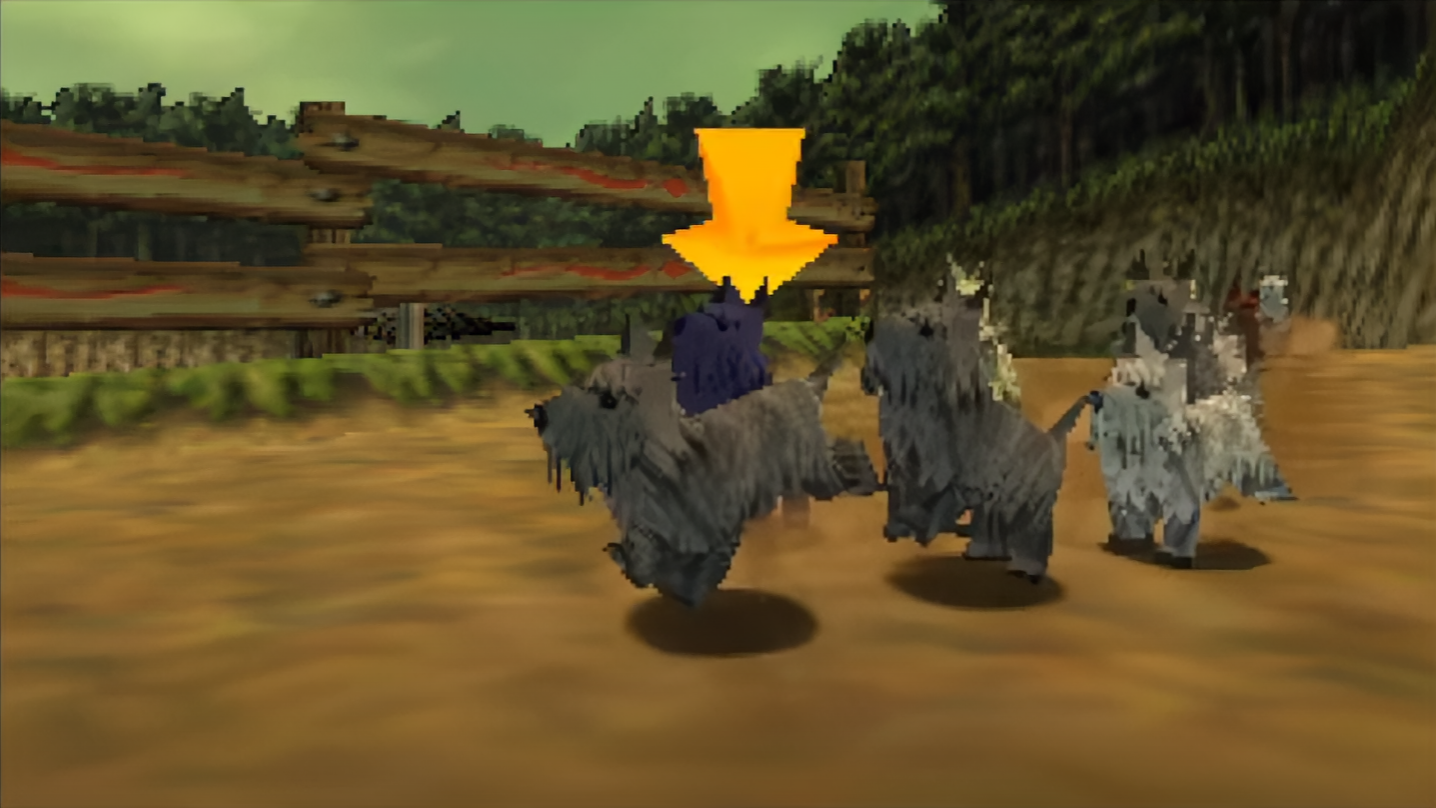
The statistically slowest dog in The Legend of Zelda: Majora's Mask, Blue Dog, has finally secured a legitimate win in the dog race minigame, almost 25 years since the game's April 2000 release. Not only is this occurrence unintended, considering the game coding making Blue Dog the slowest available dog, but even glitched victories weren't documented online until April 2018.
The story came to our attention through YouTuber Vidya James, who effectively documents the history and study of this Majora's Mask phenomenon, progressing from how Blue Dog could ultra-rarely "win" while still visibly not coming in first place thanks to a glitch to learning how to manipulate all the variables required to grant Blue Dog a full, glitch less victory eventually.
Like Super Mario 64's unopenable door, Blue Dog in Majora's Mask has long stood out to enthusiasts of Nintendo 64 gaming as an oddity, generally understood to be worthless while still building an urban myth thanks to some all-too-rare winning conditions.
So, the glitch that enabled Blue Dog sometimes to win involves an early, invisible finish line placement that, on highly sporadic occasions, will result in the race ending early, with whoever touched the invisible line at a specific frame winning the race, even if they eventually fall to the back or don't make it close to first at all. Even on rarer-than-blue-moon occasions, when Blue Dog could sometimes secure a glitched victory, he would be unable to gain a legitimate lead, and often, another dog would receive the glitch victory instead.
After studying the scenario enough, fellow YouTuber and speedrunner Falkush wrote a custom script to be used with an emulator that would allow new runs of the dog race to be run and recorded near-constantly, with the RNG variables permanently changed by a single frame difference in A press to start the race. Considering the variables at play, Majora's Mask should be able to produce 1,083,414,090,350,592 (roughly 32 million years of) unique races— which is great for replay value but crushing for a Blue Dog doomed to permanently lose in a game whose core conceit revolves around Groundhog Day-styled time looping.
The automated attempts to trigger the glitch victory by Falkush saw Blue Dog finally secure a glitched win after 8000 runs, giving it roughly 1/8000 odds for a glitched victory, with other dogs having roughly 1/1000 odds. This glitched victory still had Blue Dog technically in 5th place, though— could a true perfect victory still be possible?
Using the script from a slightly earlier point in the game (at which "condition" is applied over all dogs' base stats), Falkush began searching for conditions that would net a true Blue Dog victory. This mainly meant ensuring the usual top performers were under the weather, and Blue Dog was having his best Groundhog Day. Falkush even went as far as to run the script on two computers, completing about 4,000 attempts per day and 30,000 overall to grant Blue Dog a true, glitchless victory finally.
While this is ultimately a silly story, much can be learned here. Never underestimate a significantly determined speedrunner or enthusiast when cracking open their favorite games. If it can happen, speedrunners ensure it will happen, no matter how mathematically impossible it may seem (or be without emulation).
But also...never sell the underdog short. If the earnest, humble Blue Dog can finally earn a victory after all these years in real and simulated time, so can the underdog. For Blue Dog, the odds of winning a race in Majora's Mask time looping three-day apocalypse is about one in thirty thousand. But that possibility will always exist— it need only be seized.







